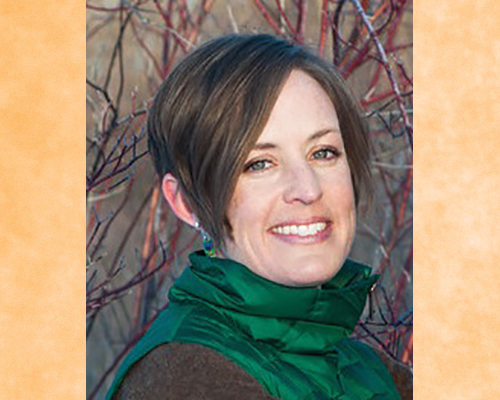“Difference unites us.” —Andrew Solomon
Caveat: I do not aspire to criticize identities, which often contribute to a meaningful sense of belonging and purpose. On their own, identities do not muck up much. Our relationships to identities, however, can create massive suffering. Therefore, how we relate to our identities is my focus.
Andrew Solomon’s depiction of vertical and horizontal identities in his book Far from the Tree: Parents, Children, and the Search for Identity helps to clarify what “identity” can and does mean to many people:
Because of the transmission of identity from one generation to the next, most children share at least some traits with their parents. These are vertical identities. Attributes and values are passed down from one parent to child across the generations not only through strands of DNA, but also through shared cultural norms…Often, however, someone has an inherent or acquired trait that is foreign to his or her parents and must therefore acquire identity from a peer group. This is a horizontal identity. Such horizontal identities may reflect recessive genes, random mutations, prenatal influences, or values and preferences that child does not share with his progenitors [e.g., a gay identity for the child of straight parents].
I propose that identities, whether inherited from our ancestors or socially constructed via peers, can promote both a sense of connectedness and of alienation. The moment we use identity as a shortcut—a cardboard cutout of ourselves—is when identity limits our sense of wholeness and freedom.
For example, a young man sorting through his complicated sexual feelings initially finds spaciousness in a horizontal bisexual identity. When he shares this newborn identity with others, he mostly encounters judgments: “You’re just afraid to say that you’re really gay.” “Bisexuality isn’t real.” “Figure yourself out!” He starts to believe both these judgments and that something is deeply wrong with him. He is not defective in just his sexual identity, but throughout—he is a flaw. Having become intimate with shame, he inhabits a new identity: “messed up.” Messed up actually represents a vertical identity, as it has been in the family for generations and, like “anxious,” fits like a glove. The “traits” of shame and anxiety already appeared in his childhood. As full-blown identities, they reveal themselves in statements like, “I am a failure.” “I am afraid.” These identities soon cover over a vibrant young life and make breathing, let alone inhabiting the present moment, difficult. This moment, after all, is dynamic and multifaceted, unlike the identities in which the young man now drowns.
Such an overly simplistic biography mimics our frequent use of identity labels by glossing over the many details and contexts that make up ever-changing human lives. Our reductive versions of people frequently show up in everyday language: “She’s bipolar. What do you expect?” “That’s because he’s trans.” “This is what depressed people do.” “Biracial people think like that.”
A re-humanizing alternative to such us/them renderings is the belief that love requires understanding. As Thich Nhat Hanh wrote in True Love: A Practice for Awakening the Heart, “Understanding is the essence of love. If you cannot understand, you cannot love … What must we do in order to understand a person? We must have time; we must practice looking deeply into this person. We must be there, attentive; we must observe.”
Identities can get in the way of such understanding if we do not use them with caution and care. To be sure, identities like “lesbian,” “genderqueer,” and “ally” can help us to feel a part of this world and human condition. We can experience an intimate bond with others on account of a shared history and/or way of expressing ourselves and/or way of showing up in the world. But they are not our entirety.
Moreover, in the realm of human difference, we often seek “premature transcendence,” a term I heard from Tara Brach at a daylong retreat. We want to gloss over the many ways our lives differ to feel a connection with others, to arrive at an understanding how our differences unite us. “I don’t see skin color,” represents a common statement of such mythical unity in this so-called “post-racial” era.
Our differences can be very beautiful. To paraphrase Solomon, they can allow us to inhabit the world’s wideness rather than simply observe it from a distance. When we make differences a solid entity, however (i.e., I am this, forever and always), we lose sight of how we are more than the sum of our parts, and that greater whole is noble and worthy of love and peace. As Jack Kornfield wrote in his article “Discovering Our Nobility: A Psychology of Original Goodness” in Shambhala Sun, “Our belief in a limited and impoverished identity is such a strong habit that without it we are afraid we wouldn’t know how to be…yet some part of us knows that the frightened and damaged self is not who we are. Each of us needs to find our way to be whole and free.”
May we therefore each awaken from our narrow storylines of who we are so that we can recognize our own sacredness, live from that larger awareness, and recognize sacredness in others. And, may we not make “sacredness” into another identity that prevents us from understanding others’ and our own struggles as well as the evolving nature of understanding—of love. n
Connie North is a psychotherapist in Madison with an MS in marriage and family therapy and PhD in education. She uses a mindfulness-based, justice-oriented approach and has taught and written about LGBTQI, equity, and diversity issues. More information about her is located at connienorth.com.
























0 Comments